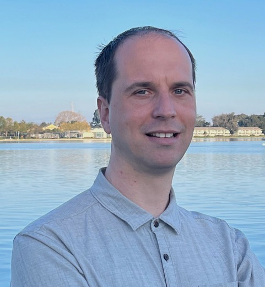Jonas Cremer
Sanford University
The cell-physiological constraints of microbial growth in and out of steady-state
8th March 2022 | 5 pm (UK) | Zoom
Registration link here
Abstract
Efficient growth is central for microbial life and microbes thus need to coordinate their cell-machinery for rapid biomass accumulation. In this talk I discuss recent advances in understanding this coordination. Via the lens of a low-dimensional theory I particularly consider how growth is shaped by a balance between protein synthesis (via ribosomes) and the metabolic processes which are needed to sustain ribosomal activity. An extensive comparison with data from Escherichia coli establishes the theory and shows how cells adjust the balance between metabolism and ribosome activity to navigate the constraints of protein-synthesis in steady and changing conditions. Our findings confirm that the ribosome content in the cell is tuned to best cope with the encountered condition but many proteins which support metabolic processes are more broadly expressed across conditions even if not needed. This combination of optimal and (apparently) non-optimal behavior explains many growth phenotypes, including the ‘growth-law’ relating ribosome content with growth-rate and long lags in growth when conditions shift.
About
Prof. Jonas Cremer has recently moved to Stanford, having previously set up a lab in Groningen. His post-doc work was at UCSD with Terry Hwa, where he pioneered experiments on gut microbiota that combined elements of population dynamics and resource allocation with the physical context and fluid dynamics of that organ. He now continues to develop wet-lab approaches and modelling to investigate the physiology of bacterial cells and their ecological interactions with each other and the human host.


